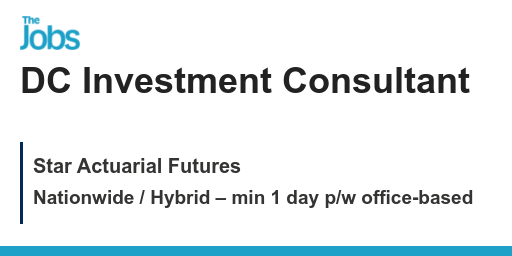
Companies can use disaster recovery planning to recover in an emergency. They can provide an off-site office environment, a hot disaster recovery site, and a replica of their primary site's IT infrastructure, applications, and data. They also help to assess risk and determine acceptable recovery objectives. Companies can also use disaster recovery planning services to help them develop procedures, documentation, checklists, and checklists for recovery from disaster.
Considerations when developing a disaster recovery plan
There are several key factors to consider when developing a disaster recovery plan. A disaster recovery plan should always be tested and re-evaluated. In addition to this, a disaster recovery plan should include all the necessary contact information, including key government agencies, vendors, and staff.
Organizations should create a recovery team and create a disaster recovery plan to safeguard their operations from disasters. The plan should clearly define what is at stake, and outline the procedures to follow in the event that there is a disaster. It should identify critical applications as well as the backup processes. The organization may require additional procedures. The plan must be implemented, followed through, and should be tested regularly to ensure it is operating properly.

Disaster recovery as a service: Benefits
Disaster recovery can be an easy and quick way to retrieve data when disaster strikes. You can retrieve your data quickly by storing it in a third party cloud computing environment. This helps you avoid costly downtime while protecting your valuable data and reducing your costs.
Cloud-based disaster recovery software allows you to deploy systems quickly and easily across your network. It also integrates seamlessly with your business continuity plan. Cloud-based disaster recovery solutions can also be adapted to changing needs and scale easily, making them a good choice. Cloud-based solutions can be switched to before disaster strikes. This can help ensure that your data remains safe and available at all times.
Assisted DRaaS
Assistive disaster recovery planning services are an important part of your business continuity plan. These services provide assistance to organizations in restoring critical IT assets after a disaster. These services also offer other benefits, including the ability to recover data quickly and applications. These services can be provided as managed services, which means you don’t have to worry about managing your recovery infrastructure.
Disaster recovery planning services may be able to help you develop a plan but they don't fit all businesses. Every business has different requirements and work schedules. Before you decide on a provider for your business, there are two things that you need to consider. The first is to determine whether the disaster recovery service provider you choose is reliable and trustworthy. You can review testimonials from previous customers to determine their reliability and then conduct internal tests to assess their performance.

Outsourced or in-house disaster recovery planning
Many organizations struggle to decide between hiring an in-house DRBC group or outsourcing the work to a third-party company for disaster recovery planning. While both methods have their advantages, there are a few key differences. In-house DRBC teams are more likely to produce better results than outsourced ones because they have more experience in the field. They also tend to be more flexible, and they have lower startup costs.
A cost-performance difference is another factor that distinguishes between in-house and external disaster recovery planning services. While an in-house plan will save you money, it could also cost you valuable time. Additionally, the team will have to deal with problems, which can cause wasted time or cost you valuable resources. An outsourced disaster response team can deal with problems quickly, and with minimal effort.
FAQ
What is the difference in a consultant and advisor?
An advisor gives information on a topic. A consultant is able to provide solutions.
A consultant works directly alongside clients to help them realize their goals. Advisors advise clients indirectly via books, magazines, lectures and seminars, etc.
How does consulting differ to freelancing
Freelancers, who are self-employed and provide services to clients without the need for employees, are independent contractors. They generally charge an hourly rate depending on how long they spend on a client project. Consultants typically work for agencies and companies that employ them. Their salaries are usually paid monthly or annually.
Consultants often have more flexibility, while freelancers can choose to work when they want and set their own rates. Consultants, however, often have better benefits such as retirement plans, vacation days, and health insurance.
Consulting is it a job?
Consulting is not only an entry-level profession for those looking to make fast money, but it's also an excellent way to acquire valuable skills that you can apply throughout your career.
There are many options for consulting. These include project management, business strategy, strategy, leadership, and training. It is possible to work on projects that range from small start ups to large, international corporations.
Consulting gives you the chance to grow and develop your skills. This could mean learning to manage teams, negotiate contracts, write proposals, manage budgets, analyze data, create presentations, conduct market research, and much more!
What can I count on from my consultant to help me?
You should hear back from your chosen consultant within a few days. They will usually ask for information about your company, including its mission, goals, products, services, budget, etc. They will then send you a proposal that outlines the scope of work and estimates timeframe, fees, deliverables, milestones and other details.
If everything is in order, then the parties will enter into a written contract. The type of relationship between them (e.g. employer-employee or employer-independent contractor) will determine the terms of the contract.
If everything goes smoothly, the consultant can begin work immediately. He/she will have immediate access to your internal documents, resources, and you'll be able to access his/her skillset and knowledge.
However, don't assume that just because someone is a consultant that s/he knows everything. To become an expert in any field you consult, it takes practice and effort. Don't expect your consultant know everything about your company.
How much should a consultant charge?
It depends on your offering. If you're providing services for free, there is no reason to charge anything. But if your services or products are for sale, you will need to establish prices that reflect their value.
If you are providing low-quality services, then you don't have anything to sell. Why should anyone pay for your services?
If you are providing high-quality services, then you could ask for a higher price because people recognize the value you provide. Also, clients who purchase multiple packages from your company may get discounts.
Statistics
- According to IBISWorld, revenues in the consulting industry will exceed $261 billion in 2020. (nerdwallet.com)
- "From there, I told them my rates were going up 25%, this is the new hourly rate, and every single one of them said 'done, fine.' (nerdwallet.com)
- On average, your program increases the sales team's performance by 33%. (consultingsuccess.com)
- Over 62% of consultants were dissatisfied with their former jobs before starting their consulting business. (consultingsuccess.com)
- 67% of consultants start their consulting businesses after quitting their jobs, while 33% start while they're still at their jobs. (consultingsuccess.com)
External Links
How To
What is a typical day for a consultant?
The type of work that you are doing will affect the typical day. You'll spend your time researching new ideas and meeting clients.
You will have many meetings where clients and you can discuss their issues. These meetings can be held over the telephone, online or face-to face.
It is possible that you will be asked to write proposals. These documents outline your ideas and plans, and are required by clients. Before presenting these proposals to clients, you will usually need to discuss them with a colleague or mentor.
After all the preparation and planning, it's time to actually create some content. This could include writing articles, designing websites or editing photos.
Depending on your project's scope, it may be necessary to do research to get relevant statistics. This could include finding out how many customers your company has and whether they purchase more than one product.
Once you have enough information, it is time to present your findings and conclusions to clients. You may give your findings orally or in written form.
After your initial consultation, you should follow up with your clients. You might contact them regularly to check on their progress or send them emails to confirm they have received your proposal.
Although it takes time, this process is worth it. It's also important to keep your eyes on the prize and maintain good relations with clients.